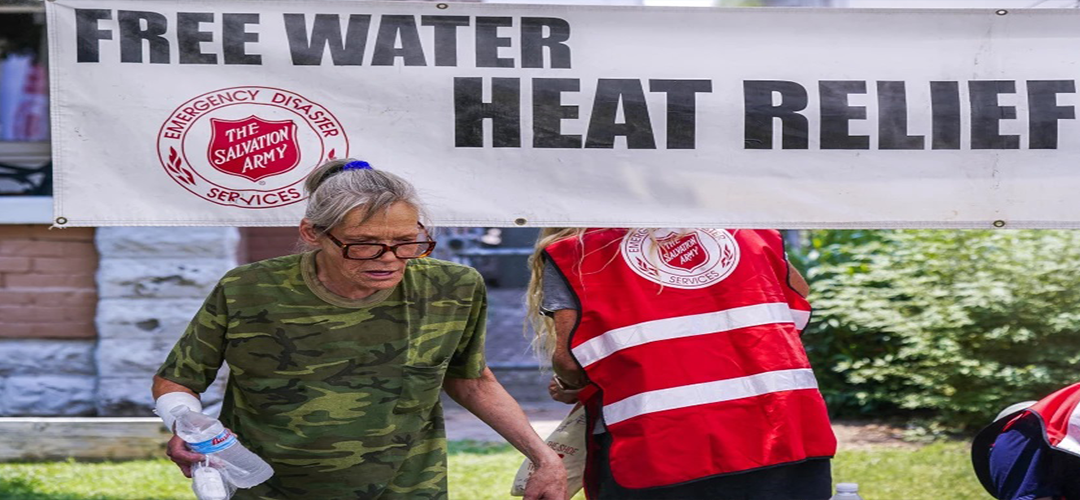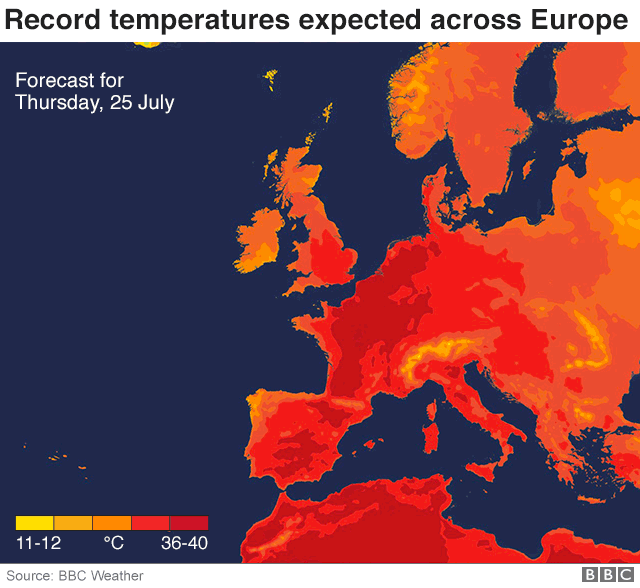HOTTER SUMMERS & COLDER WINTERS
July 23, 2022 | Expert Insights

Over the past few months, the European continent has been gripped by the most intense heatwave it has ever experienced. The stifling heat wave—set to break temperature records in the UK, France, and elsewhere—couldn't have beckoned at a worse time. Fuel and electricity prices are already on the rise as Russia chokes off the continent's natural gas supply, which is used in power plants, which means that it will take a lot more to live comfortably in Europe this summer.
Background
Since May 2022, Europe has been sweltering under the worst heatwaves the continent has ever witnessed. Most regions of western Europe are encountering outrageous temperatures, and nations like Portugal are fighting rapidly spreading fires, causing massive property damage and killing citizens. But this is only a microcosm of what is occurring worldwide- in the past decade, climate-related extreme events have killed an average of 400,000 individuals, impacted 1.7 billion others and dislodged a total of 25 million individuals every year around the world.

Analysis
Heatwaves have become more frequent, graver, and enduring due to environmental change. The world has proactively warmed by around 1.10C since the modern period started. The intensity expected to hit Western Europe towards the end of July follows long periods of weather disturbances on the Iberian Peninsula. Countries across Europe are recording their highest ever temperatures, with the UK Met Office issuing its first-ever Red Warning (indicating a "danger to life) for extreme heat in England, with temperatures possibly rising to 430C. Temperatures are set to hit record highs in mid-July in France, and Spain and authorities have cancelled traditional fireworks displays on France's national day to reduce the risk of fires and heatstroke.
The extreme temperatures are causing what scientists are calling "heatflation". In Italy, the hot and dry circumstances supposedly devastated 33 per cent of the seasonal harvest of rice, corn, and creature grub — at the very least. The European Commission has already downsized its wheat exports from 130 million tons to 125 million tons — all the more terrible news amidst a food crisis fuelled by Russia's barring of seeds sent out from Ukraine. While environmental activity and monetary worries are frequently in contradiction, the current course of events shows how they are very much the two sides of the same coin.
A gas crunch this week would likewise come at the most exceedingly terrible time as it would hit electricity production by gas-fired power plants. Higher temperatures have pushed up demands for power to drive cooling units, a phenomenon that we experience every year in India when such demand spikes trigger long outages. Enagas, Spain's gas transmission framework administrator, claimed that its gas-powered generating plants produced a record 800-gigawatt hours last week. With Russia threatening to cut off the gas supply to Europe, dwindling stockpiles of natural gas are sending energy prices soaring and driving inflation.
Assessment
- The present heatwaves tearing through Europe are a grim reminder to the global North that their chickens are coming home to roost; over three centuries of excesses with the delicate environmental balance is now seeking its price. While the global South has been stoically suffering from the climate change blowback for decades, nature is now showing its wrath on the rich and prosperous countries.
- These frequent weather events could be a blessing in disguise if they force the hands of the European government to accelerate the long due climate reforms despite the economic cost involved. More importantly, they must also take the developing world along in the journey of reformation as much greater climate depredations are being wreaked by the large populace inhabiting Asia and Africa.








Comments